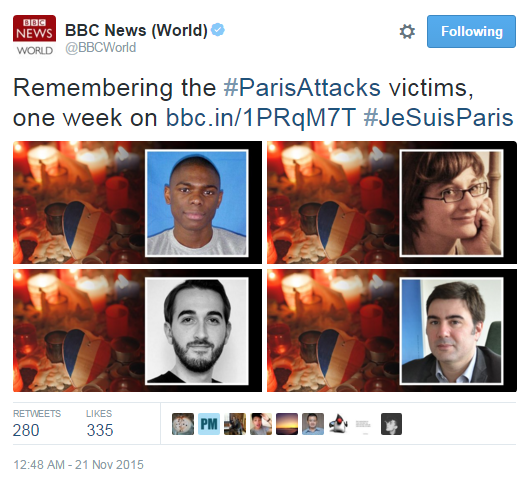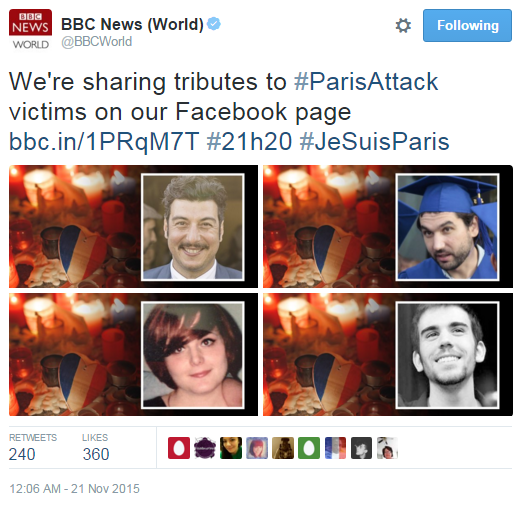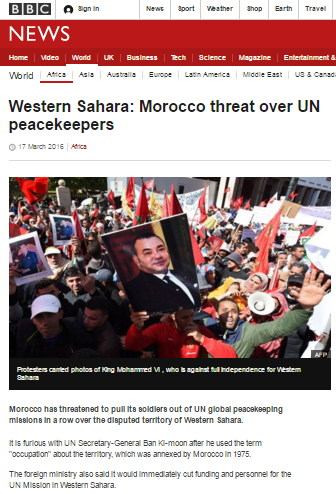Whilst stuck in early morning traffic on the way to Manchester airport last Monday I found myself listening to BBC Radio 5 live’s morning broadcast. The programme understandably focused mostly on the weekend’s terror attacks in Paris and one feature particularly notable to Israeli ears was the effort made to personalise and humanise the victims.
Listeners were given a range of information which typically included names, ages, occupations, family statuses, places of birth and education and in some cases also heard of the reactions of loved ones. Such information of course enables the listener to get beyond mere casualty figures and goes some way towards helping audiences appreciate the individual personal tragedies of victims and their families.
A week on from the attacks, that trend continues to be a feature of BBC content, with an article titled “Paris attacks: Who were the victims?” appearing on the homepage and World page of the BBC News website on November 20th and the BBC News Twitter account promoting a Facebook post devoted to tributes to the victims.



By way of contrast, the BBC’s descriptions of five victims of terror murdered in two separate attacks on November 19th in Tel Aviv and Gush Etzion are notable for the paucity of personal details. 
“Five people have been killed in two attacks in Israel and the occupied West Bank, officials say.
In the first attack, two Israelis were stabbed to death by a Palestinian man at the entrance of a shop that serves as a synagogue in the city of Tel Aviv.
Later, a third Israeli, a Jewish American and a Palestinian were killed in an attack near a Jewish settlement.” […]
“One of the victims, a man in his 20s, was declared dead at the scene by the Magen David Adom ambulance service. The second was rushed to Tel Aviv’s Ichilov Hospital, but was pronounced dead on arrival.” […]
“Hours later, an attacker in a car opened fire at a busy junction and then crashed into a group of pedestrians, killing three people and injuring several others, the Israeli military said.
Two of the dead were identified as Jewish – an 18-year-old American tourist and a 50-year-old Israeli. The third was a Palestinian.”
Rabbi Aharon Yesayev, 32, from Tel Aviv, Reuven Aviram, 51, from Ramle, Ezra Schwartz, 18, of Sharon, Massachusetts, Yaakov Don, 49, from Alon Shvut, and Shadi Arafa, 40, from Hebron were not even named by the BBC in its report on the two incidents – even though that information was in the public domain by the time its final version was updated. Their photographs and personal stories are not featured in any dedicated BBC article or Facebook post.
Predictably, the BBC article on the attacks in Tel Aviv and Gush Etzion does not mention the word ‘terror’ whilst the article about the victims murdered in Paris opens with the words “Tributes have been paid to the 130 people who lost their lives in the Paris terror attacks”. Evidently the BBC’s two-tier system of reporting terror attacks is not only confined to the use of language.




